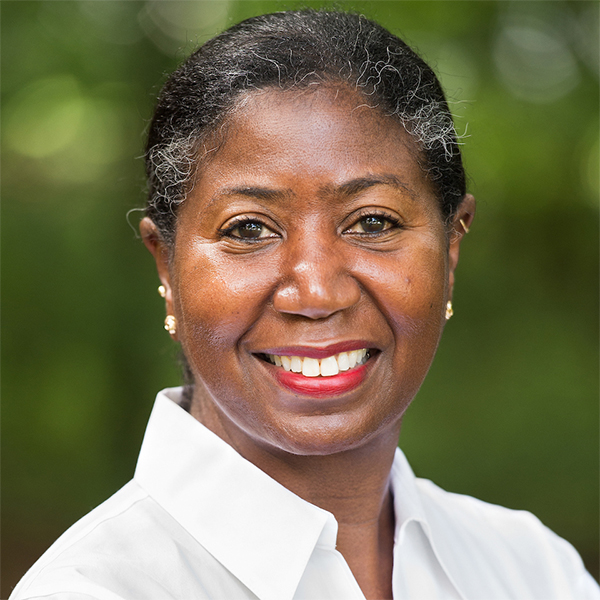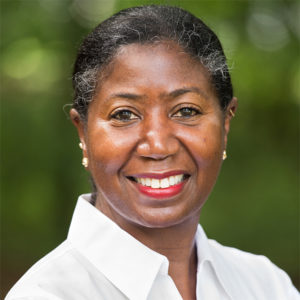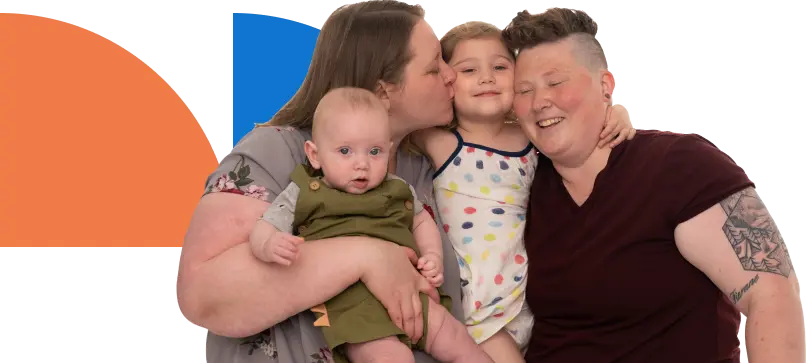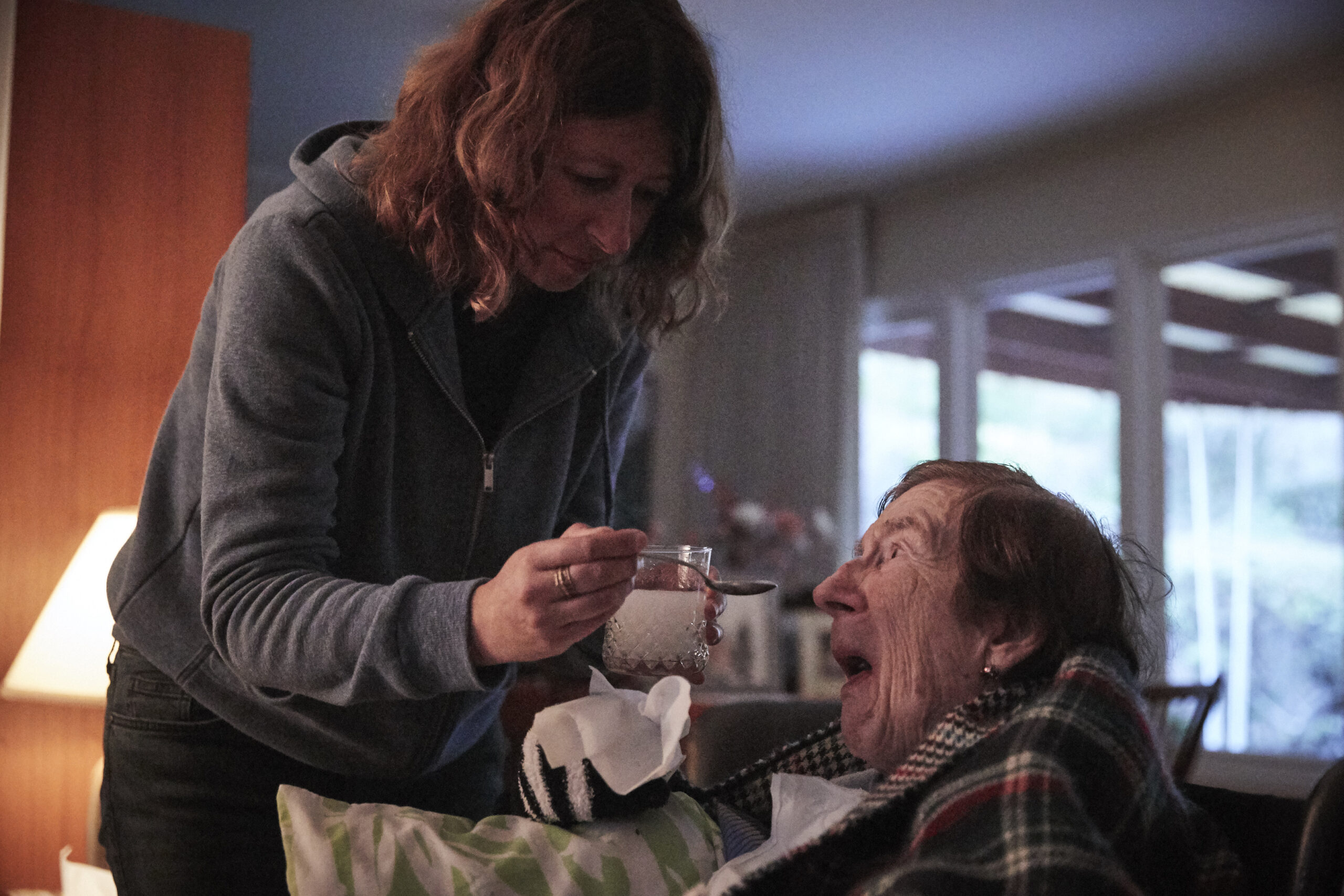
We’re so excited to welcome Diann Rust-Tierney to the team as our new Senior Director of Advocacy. Diann has worked in a number of different disciplines, but always in the pursuit of justice for those who face tremendous inequities. Read on to find out why Diann is so excited to dig into the issue of care, how she thinks about caregiving in her own family (and in her future!) and what app she uses to learn the sweetest dance moves 🙂
What drew you to Caring Across, and what does our work mean to you?
The thing that drew me to Caring Across was the mission, which is consistent with what I’ve always cared about – working against poverty, deprivation, and people being left out. I started out right after law school working for a legal counsel for the elderly. It was a really rewarding and important job for me.
I was also drawn to Caring Across because of its focus on equity, especially around women. I had worked as a staff attorney for the National Women’s Law Center (NWLC), and that work was really about recognizing the relationship between economic deprivation and gender discrimination. As a society, we don’t recognize the value that women provide in the workforce and in the home, and work done at home is not valued even though it has fundamental value. If it wasn’t valuable, you wouldn’t have to pay someone else to do it when you have to work and provide care! That is very consistent with the mission of Caring Across – to recognize the value of work that is done in the home.
The work I was doing just before coming to Caring Across was around ending the death penalty. Again, the death penalty is about not recognizing and valuing the humanity of people, and again and again the most severe punishment was visited upon the most vulnerable. People on death row have suffered deprivation, both economic and emotional, and severe trauma – all of these are things we fail to address on the front end that end up creating a tragedy on the back end. If we respond with more suffering and more cruelty, we won’t solve anything. But if we invest in humans – in mental health services, communities, the vision that Caring Across has put forward, we would have to deal with far less of the tragic results of our failure to invest in humanity and humans.
And lastly, the people at Caring Across really drew me here – seeing Ai-jen’s work and meeting the people here. This is an organization that is trying to live its values, internally and externally – and that’s a great combination. It’s really full circle of the work I’ve been doing throughout my life – I’ve come to see that we have to deal with the issues that Caring Across works on first to get at the other parts of the work I’ve been doing all along.
What is your new role, and what are you most excited to dig in to?
My new role is the Senior Director of Advocacy. Part of what I’m really excited about is getting to build Caring Across to be one of the best legislative offices in Washington, DC, and in the country. The ground has been so well seeded, so I’m feeling very good about what the outcome of this current infrastructure discussion is going to be, and I’m feeling confident that we’re going to see the foundation laid to build what we’ve been working towards for the past ten years. I’m excited about building the team. I’m also excited to see how we will continue to change the conversation around care and continue to change legal and economic structures so that we’re transforming the county in an amazingly positive way.
Then, once we pass the infrastructure package, I’m ready for us to figure out what the next piece of legislation is that we want to look at, who are the new stakeholders we want to bring in, who are the new economists and tax experts we want to engage in this conversation, and how do we continue to engage the American public in this really exciting and positive conversation about what kind of country we want to be.
I think that also aligns really closely with the question that’s on the table about whether we, as a country, want to be a representative, diverse democracy, and what that looks like and how we can all benefit from that. So many things in our country that aren’t working for us we have taken as, “that’s the way things are,” but it doesn’t have to be! That’s another thing I really like about Caring Across – we don’t accept the way things are – we look at where we want to be and are building to get there. I’m really excited about digging into these issues and building that out.
What kind of work have you done in the past?
In the past, I’ve done direct legal services at a Legal Counsel For the Ellderly, which represented low income elderly people in Washington, DC. When I started out there after law school, I thought that would be my life’s work – I really loved that work, I loved the people, and it really felt like we were making a difference. We knew when we got someone’s lights turned back on, when we helped someone get Social Security benefits, when we helped someone who was in grief navigate DC probate law.
I was torn when I got the opportunity to work at NWLC on the national policy level – I made the choice to move to NWLC because I realized that, though I knew I could do a lot of good 1:1 with people, that maybe I could do more good by addressing systemic issues. At NWLC, I did federal litigation, class action suits, and multi-plaintiff litigation work.
While I was at NWLC, I also volunteered at a local anti-death penalty group. I’ve always had this instinctive repulsion at the death penalty and the way it was used. I remember participating in vigils outside of the Supreme Court in the middle of the night, and thinking, “I want to get at this from the beginning of the problem, I don’t want to be standing here with this little sign in the middle of the night!”
So a colleague I had mentioned that the ACLU in DC worked on this issue, so I started working as a legislative counsel for the ACLU, which, being based in DC, is the legislative office for that organization. My portfolio touched many areas – women’s rights, LGBT rights, and capital punishment. This position allowed me the opportunity to pull together a coalition of religious groups and others to fight a 10 year battle to stop the US from reinstating the federal death penalty. So our work at the ACLU shifted to attacking the death penalty state-by-state.
At that point, I came to believe that I needed to be at a single issue organization around the death penalty to actually achieve state-by-state abolition of the death penalty, which led me to the National Coalition to Abolish the Death Penalty. The coalition had a local network of independent state affiliates, and a lot of the work there was to solidify a strategy around that to attack the death penalty on a state level. We brought in national organizations, provided them with training to do that work, and set about getting to work. The movement has grown so much and has taken off and gathered its own momentum. When I think about when the death penalty was finally repealed in Virginia, it is clear to me that a lot that I had wanted to get done was already in place and already moving forward, which provided me with the opportunity to look at what my next challenge and opportunity should be.
What is your experience with care, and how did it bring you to do this work?
Like most people with aging family members, I have learned first hand about the challenges of finding the right care situation for the most precious people in our lives. You have to trust that you’re finding the right person and the right opportunities. In my family, we have been fortunate enough to have been able to do that, but I have seen that resources are not available for people who need help. Very few people are fortunate enough to land in that situation where they have what they need to provide and receive care, and there are so many people out there who need care. I also have direct experience with family members who devoted significant portions of their lives to caring for others, whose dedication was not recognized or rewarded financially.
Families need guidance in how to give care. It is more than just physically taking care of people: it’s managing the emotional transition of control and leadership between parent and child. Part of the reason that we don’t have the resources to do this skillfully is because society doesn’t recognize that transition as a real thing. But if our society recognized it as a part of life – if we talked about what it means when the child becomes a caregiver, and how we can recognize that transition while still honoring the dignity and independence of the parent – then we would be much better off.
I have two sons. My youngest son and I have talked (and the sons talk among themselves) about how our relationships are going to change as I grow older, with regards to caregiving. But as we talk about my growing older, I feel myself– clenching up and being caught up in that feeling of loss of control. These feelings make me more sensitive to thinking about how I show up for my parents as they grow older.
As a society, we don’t acknowledge these complexities of aging. We don’t have the conversations that can prepare us to do that. The physical and financial challenges of these care issues are compounded by the fact that we don’t have the emotional and verbal resources to have these conversations, or even the vocabulary. So if we get our care systems to where we want them to be, we will have a far better, fuller, and evolved society because we will have built a care system based on relationships and based on a better understanding of life, death, and dying. Right now, we don’t accept that cycle, but if we can do that, we’ll actually be healthier and more able to focus on what is important in the now.
What do you like to do outside of work?
I like artistic work. I love dance – my passion right now is studying ballet, and I’ve been trying to keep it up even while we’ve been stuck at home, and taking on-line classes. And I’m always trying to learn a new dance on TikTok.
Another real passion of mine is theater and film. I like to take acting classes, auditioning for roles, and if I can get a role, to perform. Those are the things that make me happy.
I also love music and I love languages. I had studied French all my life, so one of the things I’ve tried to do during the pandemic is to strengthen my French skills. I’ve been watching a lot of films in French. I love watching films from other countries and seeing other cultures and learning about the cultures through film.
On occasion I like to eat too. I’m not a person who cooks every night, but I love to cook when I get inspired, like when I see a recipe I want to try. I was definitely a COVID baker – I made no-knead bread a few times!




